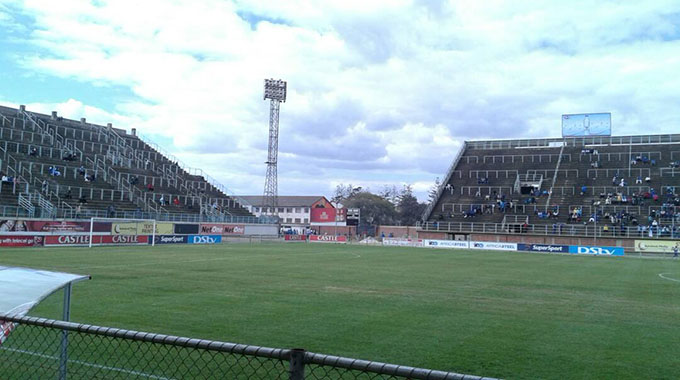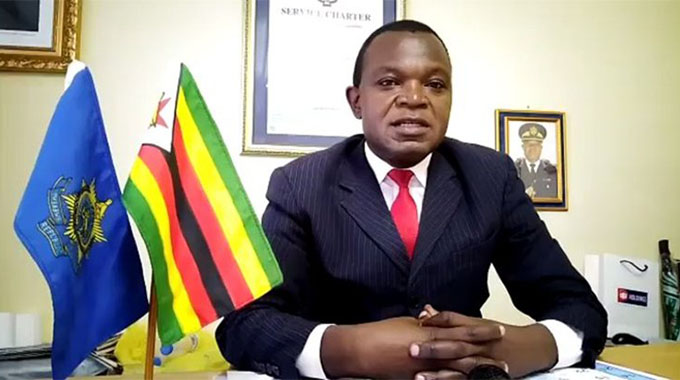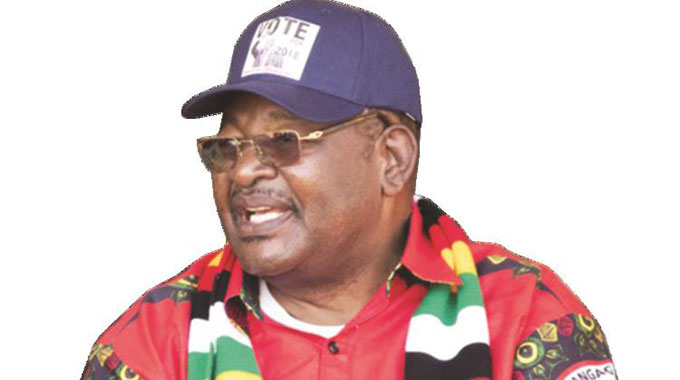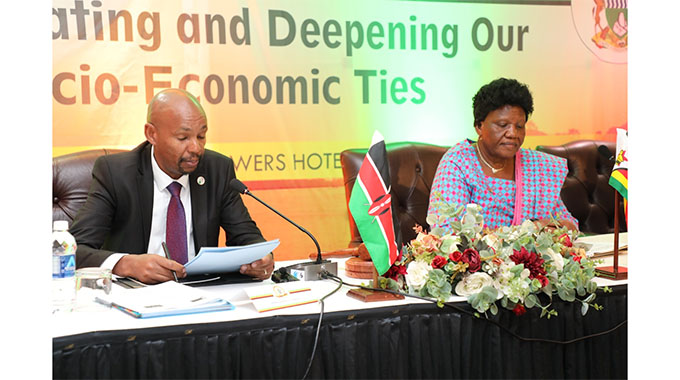ROMAN’S BLUE EMPIRE

Sharuko On Saturday
Yesterday, the article, which was generating the biggest interest, from readers of The Sun, the newspaper with the best daily circulation in the United Kingdom, was the one written by Martin Lipton. It claimed that Chelsea could fold in 81 days if the club keeps operating under the conditions prescribed by the Government and, in the event, a billionaire buyer doesn’t emerge on the scene to take over the franchise. That’s quite scary and you don’t have to be a Chelsea fan to feel the impact of such a grim scenario.
IN ’97, she turned two and there was a buzz in the house – she could now walk, talk and push all kinds of things around her new surroundings.
The messy the place, it appeared, the more it appealed to her senses.
In her world, relentlessly driven by explosive youthful instincts, to somehow find beauty, and a measure of attraction, in chaos, the more chaotic it looked, the prettier it was.
Predictably, I got her a small ball, to kick around, inside the house.
Of course, she didn’t know it was called a football.
At that stage of her life the game was far away from her mind, which was itself a heaven of innocence, a haven of purity and an island of both imagination, and exploration.
That her father’s life revolved around the ball, which she used to kick around the lounge, didn’t matter to her in her beautiful world of innocence.
I called her Mimi, everyone called her Mimz, her full name should have been Mimizeni, but no one used it and, so, predictably, this extended version of her identity quickly faded away.
In my family tree, the names are inherited, just like the genes, a newly-born baby replaces a relative who passed away, the first born son always gets the name of his dad’s father.
I don’t have to mention that my uncle was called Robson, a giant of a man, six-feet plus, heartthrob never, dark and lovely as ever.
He was a fearless warrior, which was probably expected, given his grandfather had provided royal protection service for King Zwangendaba,
He was on the King’s side, when my Ngoni people crossed the Zambezi River on November 19, 1835, on a day still remembered for the total eclipse of the sun, to settle in Chipata, in eastern Zambia.
That was long before his grandson became my grandpa, the man whose name I would later inherit.
My grandpa was born at around the same time British missionaries introduced football in Zambia, at around the turn of the last millennium.
His great granddaughter, Mimi, arrived just five years before the turn of this millennium and, in May ‘97, she had only her second confrontation with winter.
During that month, something big happened in London.
And, while she clearly didn’t know it, and didn’t even care about it, it would have a huge bearing, years later, in shaping her beautiful romance with football.
On May 17, 1997, Chelsea won the FA Cup, after beating Middlesbrough 2-0, in the final, at Wembley.
The Blues weren’t her team, back then, where she was still trapped in a home of Red Devils, her mum on one side and her dad on the other, both of them fanatical followers of Manchester United.
Neither did she know, or care, that the losing finalists, Middlesbrough, would one day, with the passage of time, become a club she would know very well.
Uncle Charlie’s team, she called Boro, a club to always sympathise with because, after all, they were the side daddy’s colleague, Charles “CNN” Mabika, supported.
As the years passed us by, and she started making her choices, free from the influence of her father, she found herself being lured into the Chelsea corner.
And, boy oh boy, she loved the Blues.
She loved Chelsea, in a way that was as raw as it was beautiful, a romance made in heaven, and in her teenage years, the London club transformed itself into the team of her dreams.
I’m not sure whether Didier Drogba, then a flying forward whose exploits was blowing away millions of girls around the continent, had any bearing in manipulating her fantasies,
Neither am I sure if this enduring romance, between her and Chelsea, was influenced, in a big way, by the primary identity of the London club, when it comes to the colour of their main kit.
It’s possible it could have come from her love affair with Dynamos, whose primary identity is also blue, the local Premiership club she watched, when I took her to the stadium, one afternoon, in 1998.
She was only three, back then, but it appears the sight of the blue colours in the stands, and the sound that came from their songs, back in the days when DeMbare would attract huge crowds, left a lasting impression on her.
The Glamour Boys had just won the championship the previous year, in 1997 and, while no one knew it back then, it would be the last title for them, under the guidance of Sunday Chidzambwa.
Fittingly, as if the football gods were closing a chapter on them, the Harare giants would go all the way into the final, of the CAF Champions League, in the year that followed Mhofu’s final championship with them.
She grew up at a time her Glamour Boys struggled to match the lofty heights of the tail-end of the previous millennium, including a lengthy 10-year wait for the championship.
Ironically, it was also a period that Chelsea came of age, winning their first championship in 50 years, in 2005, under the Special One.
And, as the Blues of London thrived, at a time the Blues of Harare were struggling, Chelsea provided a welcome sanctuary, for her broken heart, tormented by DeMbare’s domestic struggles of the first decade of the new millennium.
THE GAME THAT CHANGED CHELSEA FOREVER
This year marks the Silver Jubilee, the 25th anniversary of that summer afternoon, on May 17, 1997, when Chelsea beat Boro 2-0 in that FA Cup final.
Roberto di Matteo, with a blistering drive from distance, and Edward Newton, were the heroes as the Londoners won their first major trophy, in more than half-a-century.
For 26 years, they had toiled without a trophy, with their last success story having come in 1971, when they won the UEFA Cup Winners Cup. Ironically, it was exactly the same barren period, which Manchester United had endured, without winning a league championship, when they finally got it right, in May 1993.
And, just like the Red Devils, whose success in ’93 broke the barriers and cleared the path for a period of dominance, Chelsea’s FA Cup win in ’97, was a huge breakthrough moment for the Blues. In more ways than one, it would shape, and represent, the future of Chelsea.
For starters, the man who masterminded that Wembley success was Ruud Gullit, the Dutch legend, who became the first foreign manager to guide an English club to a major trophy. He blazed a trail, not only for a wave of foreign managers, who have repeatedly written success stories in the English Premiership, but also for the cosmopolitan influence, which has shaped Chelsea.
This breakthrough success for Gullit came on the 10th anniversary of the season he won both the Ballon d’Or and the World Soccer Player of the Year awards, in 1987.
Not bad for a son of a Surinamese immigrant, who left his home in South America, to look for opportunities in the Netherlands.
During his childhood, in Amsterdam, where his father worked as a teacher, at a local school, home for Gullit was just a single room, which he shared with his parents, on the top floor of a small apartment.
Football would later pluck him from all that poverty.
And, in the English game, it would provide him with the mandate to carry the torch, for others who followed, in announcing the arrival of a foreign manager, who could win a major trophy.
One of them was Jose Mourinho.
His arrival, in 2004, came during a major transitional period for the Blues, whose ownership had just changed hands, the previous year, after Russian billionaire, Roman Abramovich, splashed £140 million (about £195 million today), to buy the club.
A huge chunk of that money, £80 million, went into dissolving the club’s huge debt.
Abramovich has since injected over £2 billion on players during the 19 years in which he has transformed Chelsea into serial champions, with SIX league titles under his watch and two UEFA Champions League winners’ medals.
And, recently, they became champions of the world, for the first time in their history.
This week, everything changed.
Abramovich, clearly the most iconic figure in the history of Chelsea, was frozen out of his team by a raft of sanctions imposed by the British Government.
The Blues cannot sign new players, they cannot generate income from ticket sales, they cannot generate income from replica, and other related sales, from their club shop.
Current manager, Thomas Tuchel, the latest generation of foreign coaches who have taken charge of the club since Abramovich’s arrival, did not mince his words on Thursday when he said the future of Chelsea was now uncertain.
No one really knows what tomorrow holds, for this iconic football franchise, which now finds itself caught in between the interests of some powerful political figures, desperate to score points, from the conflict in Ukraine.
Yesterday, the article, which was generating the biggest interest, from readers of The Sun, the newspaper with the best daily circulation in the United Kingdom, was the one written by Martin Lipton.
It claimed that Chelsea could fold, in 81 days, if the club keeps operating under the conditions prescribed by the Government and, in the event, a billionaire buyer doesn’t emerge on the scene to take over the franchise.
That’s quite scary and you don’t have to be a Chelsea fan to feel the impact of such a grim scenario.
After all, even from a local perspective, we can’t deny that the Blues of London have had a very profound impact on our football.
For many Dynamos fans, it’s their other club of choice and, in those blue colours, they have managed to find an identity, and an association, which they are proud of.
Hatred Zenenga, my boss, the Editor of this newspaper, is a devoted Chelsea fan.
And, so is Ignatius Farirayi, my friend from Alex Sports Club, Patrick “Maestro” Mutesva, the former Warriors team manager, Marshall Gore, Jealousy Mawarire, to name but a few, of the people who are loyal to the Chelsea brand.
They even call them ‘Mabhinya,’ a nickname which has also come to be associated with the Glamour Boys.
A survey by the BBC, in 2015, showed that Chelsea are the most supported English team in Ghana (26 percent), Cote d’Ivoire (35 percent) and Senegal (26 percent).
It’s understandable, after the exploits of both Drogba and Michael Essien.
In Southern Africa, the picture changes with Manchester United the most supported team in South Africa (23%), Zambia (30%) and Zimbabwe (28%).
Chelsea are second in Zimbabwe (19%) and third in South Africa (18%) and Zambia (18%).
ROMAN’s GREAT BLUE EMPIRE
My daughter might not be here with us physically today, after we lost her six years ago, but her spirit has been walking with us, every step of the way.
I’m not so sure how she would possibly have reacted to the dramatic developments at her club this week, but I am quite certain she would have been very disappointed with the turn of events.
It’s the same reaction I am reading from many Chelsea fans who, like her, have developed this amazing bond with their favourite club.
I have been reading a lot of stuff, on the developments, so that I try to get as good an understanding of what this means.
Reuters news agency, in such circumstances, usually provide leadership, when it comes to coverage of the case, with sober, fair and objective reportage.
This week, I turned to them again and read an interesting article from them.
“European football champions Chelsea are now effectively controlled by the British government after sanctions were imposed against Russian owner Roman Abramovich.
“His purchase of the club helped transform the landscape of English football with Chelsea breaking the stranglehold of Manchester United, Arsenal and Liverpool.
“Yet now there is a huge question mark over the club’s future.
A number of potential new owners had emerged in the past week, including several American sports executives, but there is now a block on any sale.
A spokesperson for Britain’ Prime Minister Boris Johnson said that block could be lifted in the future if another licence is agreed to.
“’We would have to grant a further licence. I think it is fair to say the government is open to the sale of the club, but … currently, it would require another licence and that would require a further conversation with the Treasury (Finance Ministry),’” he told reporters.
Okay, that brings me to the BIG QUESTIONS:
What is Government interference in football, does it really exist, at all or it’s just a myth peddled by those at FIFA House in Zurich to safeguard their selfish interests?
Where does FIFA draw the line to say this is wrong, and unacceptable to us, and this is right, in terms of such third-party interference, you can get away with it?
Are FIFA sending a message that the whole football structure is like Animal Farm where all countries are equal but where some countries are more equal than the others?
Does the so-called Government interference only violate FIFA Statutes, when it’s done by an African or Asian country and it doesn’t violate the same statutes, when it’s done by European nations?
When the British Government directly intervenes, and takes control of a leading football club, doesn’t that constitute Government interference?
If the British Government puts measures which prescribe how a football club should be run, including the amounts they can spend, or not spend, isn’t that Government interference?
Clearly, the football matters in England fall under the jurisdiction of the FA and, if the Government overlooks the FA, and take a direct interest in the affairs of a club, what message are they sending?
Can’t this be deemed, in the eyes of FIFA, to be the same kind of interference which the people in Zurich frown upon, when it’s done by the weaker nations, from other parts of the world?
When the Government takes a leading role, in the sale of a football club, as they are doing with Chelsea, isn’t that third-party interference?
Chelsea are not your average type of a club.
They are the World Champions and they are the European Champions which means that, on current status, they are the globe’s leading football club.
Their status means that whatever happens at the club, it immediately attracts attention from all over the world, including FIFA, given the Blues now wear the special logo on their shirts, celebrating their world championship success.
So, if the world’s leading club, in terms of success in the past year, finds itself at the mercy of politicians, why are FIFA so quiet when they are the first to raise alarm, and come up with all sorts of sanctions, when something like that happens elsewhere?
Especially in Africa and Asia, two continents where FIFA can intimidate, and punish clubs and associations, as and when they feel like cracking their whip.
We can’t pretend Abramovich didn’t change Chelsea forever, as those at FIFA are trying to do right now, while this club is being tormented by third-party forces who have taken it from its owner. The Chelsea fans, to their eternal credit, know who is their hero.
On Thursday, in their match against Norwich, they kept singing Abramovich’s name as if they were telling everyone who cares to listen that, despite whatever they say, Roman will always be their hero.
He is also my late daughter’s hero.
It’s sad she can’t join them in the singing.
To God Be The Glory!
Peace to the GEPA Chief, the Big Fish, George Norton, Daily Service, Sitting Bull, Crazy Horse and all the Chakariboys still in the struggle.
Come on United!!!!!!!!!!!!!!!!!!!!!!!!!
Ronaldoooooooooooooooooooooo!
Text Feedback 0772545199
WhatsApp 0772545199
Email- [email protected]; [email protected]
You can also interact with me on Twitter (@Chakariboy), Facebook, Instagram (sharukor) and Skype (sharuko58) and GamePlan, the authoritative football magazine show on ZTV, where I interact with the legendary Charles “CNN” Mabika, every Wednesday night at 9.30pm











Comments